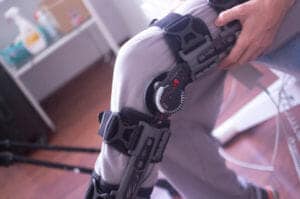The Important of SSD Medical Evidence
When you apply for Social Security Disability, you’ll likely have to wait several months before the Social Security office informs you of whether or not it has approved your benefits claim. But the processing of applications can take much longer if claims reviewers determine the medical evidence is insufficient to prove your disability.

Hiring an experienced Tennessee SSD attorney can help you avoid some of the common application errors regarding medical records. Your attorney can request the appropriate medical documents from your healthcare providers and gather appropriate statements from medical providers, as necessary.
Applying for benefits can be a long, complex process – one that you shouldn’t have to handle on your own.
John R. Colvin has represented many SSD applicants and handled the appeals process for people whose claims were denied. If you need help with your SSD case, call our office today to request your free consultation. Call 1-931-962-1044.
The Extent of Medical Evidence

If an applicant’s disability is a brain injury or other cognitive impairment, the SSA will want to see evidence regarding the applicant’s ability to understand, remember, follow instructions, and interact appropriately with coworkers and supervisors.
Depending on the nature of your disability, the SSA may require several reports, including:

The SSA wants to see as much detail as possible about your previous job functions, such as:
- Whether you used machines or equipment
- The amount of physical activity required
- Whether writing was one of your job functions
- Other information that describes skills you have used or developed on the job.
The SSA uses the Work History Report in determining whether you are able to perform any work. For example, if you have worked as a welder most of your life, but also worked briefly in a customer service call center, the SSA may decide your disability does not prevent you from call center work.

Third-Party Reports – Often included in this report are statements from teachers, employers, social workers, clergy, and family members that illustrate how your disability has affected your life.
When an SSD applicant has never worked or hasn’t worked long enough to be eligible for SSD, he or she may still be eligible for “disabled widow’s and widower’s benefits.” The benefits payable are based on the earnings record of a deceased wage earner who, at the time of their death, had sufficient quarters of coverage. Therefore, the claimant’s benefits are based on the deceased spouse’s work history once disability is proven by the claimant.
Additional Documentation

Normally, the SSA will ask the applicant’s treating physician to conduct this exam and report the results. But if the physician is unwilling or unable, or if the applicant would prefer to have a different doctor perform the exam, another doctor may conduct the exam.
The SSA may also have a history with a particular physician; and if it believes the doctor “may not be a productive source,” it may require another doctor’s opinion.
Introducing the Right SSD Medical Evidence

For example, if a doctor’s statement is unclear about whether a patient’s back injury makes work impossible, an attorney may seek supporting testimony from a vocational expert who can present a stronger and more compelling argument that the injury is disabling.
If you’re ready to schedule your free SSD consultation with John R. Colvin, contact us online, or call us at 1-931-962-1044.

